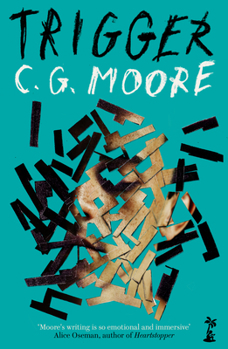Trigger
Select Format
Select Condition 
Book Overview
An unflinching verse novel about a teenage boy who is sexually assaulted in an attack he struggles to remember by the award-winning author of Gut Feelings
Kirkus Best Teen & YA Verse Novels 2024
Children's Book Council Winner 2025: Young Adult Favorites, Teacher Favorites & Librarian Favorites
Jay wakes in a park, beaten and bruised. He can't remember what happened the night before. But he has suspicions. Jay realises he has been raped -- and that his ex-boyfriend may have been involved. Counselling sessions cause Jay to question everything. His new friend Rain encourages his pursuit of justice. Jay wants answers, but his search will lead him down a perilous path. Once the trigger is touched you can't tell who to trust.
Format:Paperback
Language:English
ISBN:1915071534
ISBN13:9781915071538
Release Date:September 2024
Publisher:Little Island Books
Length:208 Pages
Weight:0.45 lbs.
Dimensions:0.8" x 5.0" x 7.7"
Age Range:14 to 18 years
Grade Range:Grade 9 to Postsecondary
Customer Reviews
5 customer ratings | 4 reviews
There are currently no reviews. Be the first to review this work.





















